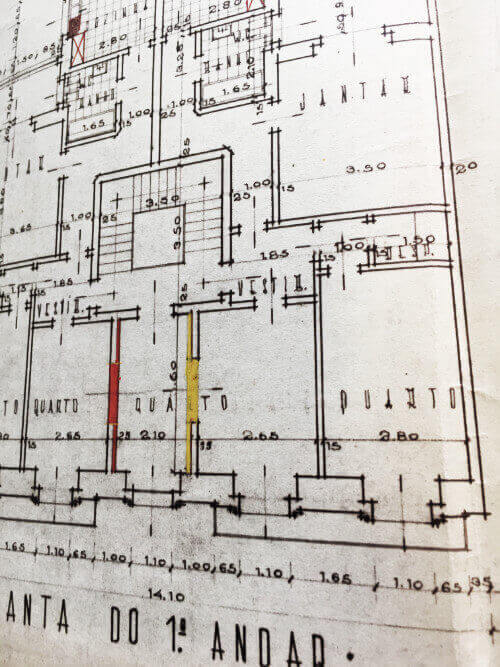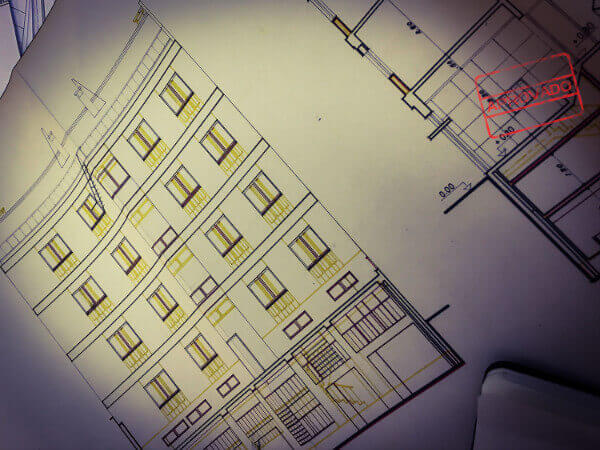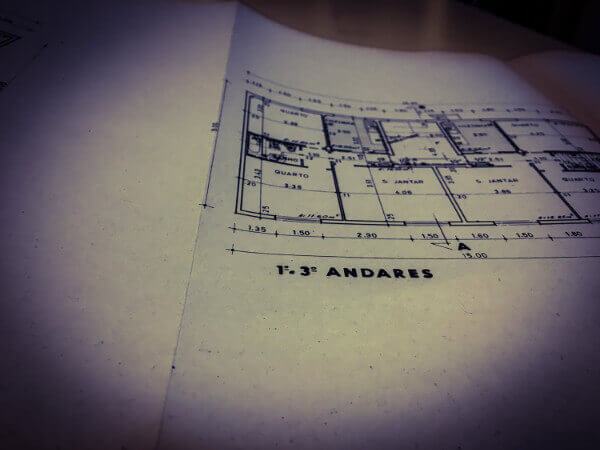ÍNDICE
ToggleBUILDING PERMIT
Building permit is a procedure regulated by the RJUE (Regime Jurídico de Urbanização e Edificação).
Obtaining building permit in Portugal is a procedure that is regulated in the RJUE - Regime Jurídico de Urbanização e Edificação (Legal Regime for Urbanization and Building Construction), according to Decreto-Lei nº 555/99 of 16th December, with the updates that were attributed to it later. Building Permit must be requested to City Councils / Local Authorities and depends on its approval, and the complexity of the process is related to the nature of the project, which may still need a green light from external entities, namely:
- Direção Geral do Património Cultural (for properties classified or in the process of being classified, or included in protection zones);
- Instituto da Segurança Social IP (necessary for example for daycare centers, where they evaluate aspects such as location, operation, suitability for the job, possible capacity and other technical and functional requirements);
- Autoridade Nacional de Protecção Civil (opinion on verification of compliance with fire safety rules);
- Direcção Geral de Turismo (for example for hotel equipment, giving an opinion on operation, capacity, etc.);
- Direcção Geral de Educação (for example for school equipment, giving an opinion on operation, capacity, etc.);
- Autoridade de Saúde (verifies compliance with hygiene and health standards);
- Among other entities, according to the specificity of each project.
After the approval of the architecture project ( in a planning submission) and respective engineering disciplines (which may optionally be delivered after the approved architecture, in the case of the licensing procedure in the planning stage) by the City Council, the building permit comes to a place where construction can start, with the emission of the "Alvará de Construção", which is the document that permit the construction. After the construction works, the application for authorization of use must be instructed with the set pf drawings as built, namely "telas finais" attached to the terms of responsibility signed by the projects' authors, construction director , construction supervision director, attesting that the work was carried out in accordance with the approved projects. Following this process, the City Council normally establishes an inspection of the site and finalized construction, which may also include external entities consulted.
After this verification between the construction and the approved projects, an authorization or use license, according to each case, is then issued by the City Council, the building permit gets to an end.
Bear in mind, that during construction, the City Council can promote regular inspections, even without notice, so all the pack of projects, identifications of all the projects' authors, coordinator and the builder part and the "livro de obra" needs to be ready in the site construction for a quick consultation.
ZERO PLANNING LICENSING
Zero planning licensing is a procedure that streamlines several economic activities, a process initiated with Lei no. 49/2010 of 12th November and regulated by Decreto-Lei No. 48/2011 of 1st April.
This legislation has already been updated by Decreto-Lei no. 10/2015 of 16th January (RJACSR).
The zero planning licensing procedure simplifies the access and exercise regime for various trade, services and catering activities. The commercial activity within the scope of this law may start functions as long as it is installed in a place with a previous use permit appropriate to the use of its activity and, as long as the place has technical and structural conditions for the exercise of that use.
With this measure, there is no exemption or exemption from compliance with the legal requirements to exercise the activity, but rather, it helps in temporal terms. In this way, the establishment can open its doors more quickly, being subject to a subsequent inspection / inspection by the corresponding City Council.
It is foreseen the replacement of a permit, by prior communication, which can be done at the 'entrepreneur's counter', allowing the installation and modification of commercial establishments (such as restaurants and beverage establishments, trade in goods and services and services, as well as requests for placement of advertising signs, awnings on the facade and use of terrace space, etc.).
It also provides that the mere prior communication is carried out by the holder of the activity at Balcão do Empreendedor, integrated in ePortugal , facilitating the process.
WHAT ECONOMIC ACTIVITIES ARE COVERED BY THE ZERO PLANNING PROCEDURE ?
Included are the various food and beverage establishments, trade in goods and provision of services and storage. In particular:
- Fruit shops, dairies, fishmongers, butchers, delicatessens, wine cellars;
- Grocery stores, food supermarkets;
- Maintenance and repair workshops for motor vehicles, motorcycles and mopeds;
- Laundries and dry cleaners;
- Hairdressing salons, beauty institutes, placement of piercings and tattoos, solariums;
- Cafes, bars, restaurants, pastries and catering;
- Refrigerated warehouses for food and non-food products;
- Own manufacturing (such as bakery, ice cream, juices and sweets);
- Preparation and preservation of fishery products,
- Workshops, among others.
However, we remind you that there are other economic activities that are not covered by zero planning licensing, such as:
- Tourist developments;
- Sports facilities;
- Education / School establishments;
- Hospital equipment / private health units;
- Retail stores covered by Decreto-Lei no. 21/2009 of 19th January (canteens, cafeterias and bars of public entities, companies, educational establishments and non-profit associations, intended to provide services of food and beverages exclusively to their staff, students and associates).
Contact us to find out more about these rules. If you have an idea and would like to invest, give us a call.
RELEVANT LEGISLATION FOR PLANNING PERMISSIONS AND BUILDING PERMITS
Decreto-Lei n.° 136/2014 de 9th September
It makes the thirteenth amendment to Decreto-lei nº 555/99 de 16th December, which establishes the legal regime for urbanization and construction .
Portaria n.° 113/2015 de 22nd April
It identifies the instructive elements of the procedures provided for in the RJUE and revokes Portaria n.º 232/2008 de 11th March.
BUILDING PERMIT - PLANNING PERMISSIONS
CONTACT US FOR YOUR PROJECT




